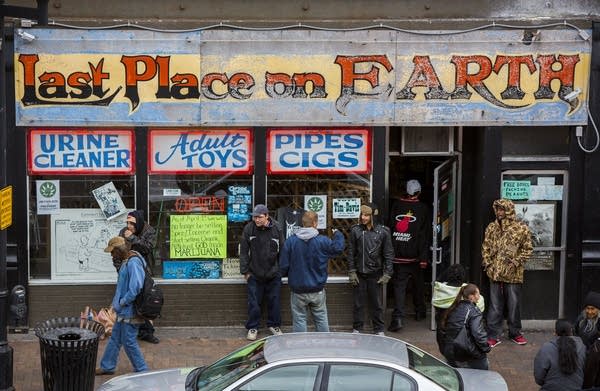Synthetic drug ordinances proposed in Duluth
Go Deeper.
Create an account or log in to save stories.
Like this?
Thanks for liking this story! We have added it to a list of your favorite stories.

A Duluth City Council member is proposing ordinances to regulate businesses that sell synthetic drugs and punish people who use them.
Sharla Gardner's proposals come as the city wrestles with concerns about a downtown head shop, Last Place on Earth.
The Duluth News Tribune reported Thursday that one proposal would set fines for people caught using synthetics and the other would allow businesses to apply for licenses to sell the products.
Police say the goal is to regulate the products since efforts to ban them have had little effect. But Last Place on Earth owner Jim Carlson said the ordinances contradict each other because they make it essentially illegal to use synthetic drugs, but then license the sale of the product.
Turn Up Your Support
MPR News helps you turn down the noise and build shared understanding. Turn up your support for this public resource and keep trusted journalism accessible to all.
Carlson said the products he sells are legal and any ordinance from the city would recognize that.
"They're not going to license a crack or a heroin dealer," he said.
Police Chief Gordon Ramsay disagreed.
"This is not about saying these products are legitimate or OK," he said. "We're trying to deal with the devastating consequences of living next door to what may be the largest synthetic drug retailer in the nation."
Gardner's ordinance would restrict areas where synthetic drugs may be sold and require products be clearly labeled with information about their ingredients, the manufacturer and contact information.
"We hear all the time from physicians and first responders ... that they cannot identify the chemicals people have taken when they misuse these synthetic drug products," Gardner said. "They don't know the antidotes to help people, and it's a big frustration."
The proposed ordinance would also limit hours of operation and ban sales of synthetics to anyone younger than 21.
Gardner's second ordinance would fine those who ingest, snort, smoke or inject any product labeled as "not fit for human consumption." Synthetic drugs often carry that label, and are marketed as incense, bath salts or other products.
First-time offenders could receive a $100 ticket and an $80 surcharge. Subsequent offenses would mean stiffer fines.
Carlson, his girlfriend, his son and a former shop employee face more than 50 federal counts of distributing controlled substances. But Carlson says the products he sold were legal at the time.



